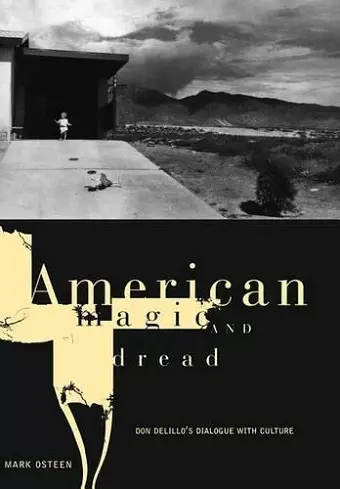American Magic and Dread
Don DeLillo's Dialogue with Culture
Format:Hardback
Publisher:University of Pennsylvania Press
Currently unavailable, and unfortunately no date known when it will be back

"A strongly argued analysis and close reading of Delillo's works. . . . There is much here in the methodology and discussion of postmodern themes and techniques that will have relevance to American studies and cultural studies more widely."—Forum for Modern Language Studies
"A strongly argued analysis and close reading of Delillo's works... There is much here in the methodology and discussion of postmodern themes and techniques that will have relevance to American studies and cultural studies more widely."-Forum for Modern Language Studies
Don DeLillo once remarked to an interviewer that his intention is to use "the whole picture, the whole culture," of America. Since the publication of his first novel Americana in 1971, DeLillo has explored modern American culture through a series of acclaimed novels, including White Noise (1985; winner of the American Book Award), Libra (1988), and Underworld (1997).
For Mark Osteen, the most bracing and unsettling feature of DeLillo's work is that, although his fiction may satirize cultural forms, it never does so from a privileged position outside the culture. His work brilliantly mimics the argots of the very phenomena it dissects: violent thrillers and conspiracy theories, pop music, advertising, science fiction, film, and television. As a result, DeLillo has been read both as a denouncer and as a defender of contemporary culture; in fact, Osteen argues, neither description is adequate. DeLillo's dialogue with modern institutions, such as chemical companies, the CIA, and the media, respects their power and ingenuity while criticizing their dangerous consequences. Even as DeLillo borrows from their discourses, he maintains a tenaciously opposing stance toward the sources of collective power.
"Osteen's wide-ranging knowledge of media history and theory and ability to draw upon a variety of theoretical approaches with great clarity convincingly links DeLillo to the major intellectual currents of our times. This is just the sort of book to generate a livelier discussion of DeLillo's place in the postmodern canon." * David Cowart, University of South Carolina *
"A strongly argued analysis and close reading of Delillo's works. . . . There is much here in the methodology and discussion of postmodern themes and techniques that will have relevance to American studies and cultural studies more widely." * Forum for Modern Language Studies *
ISBN: 9780812235517
Dimensions: unknown
Weight: unknown
304 pages